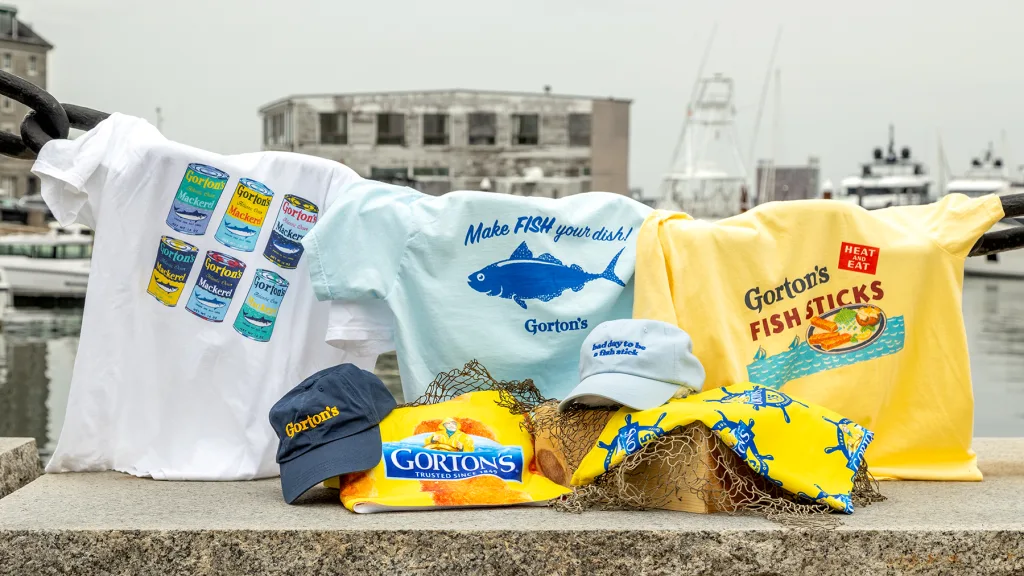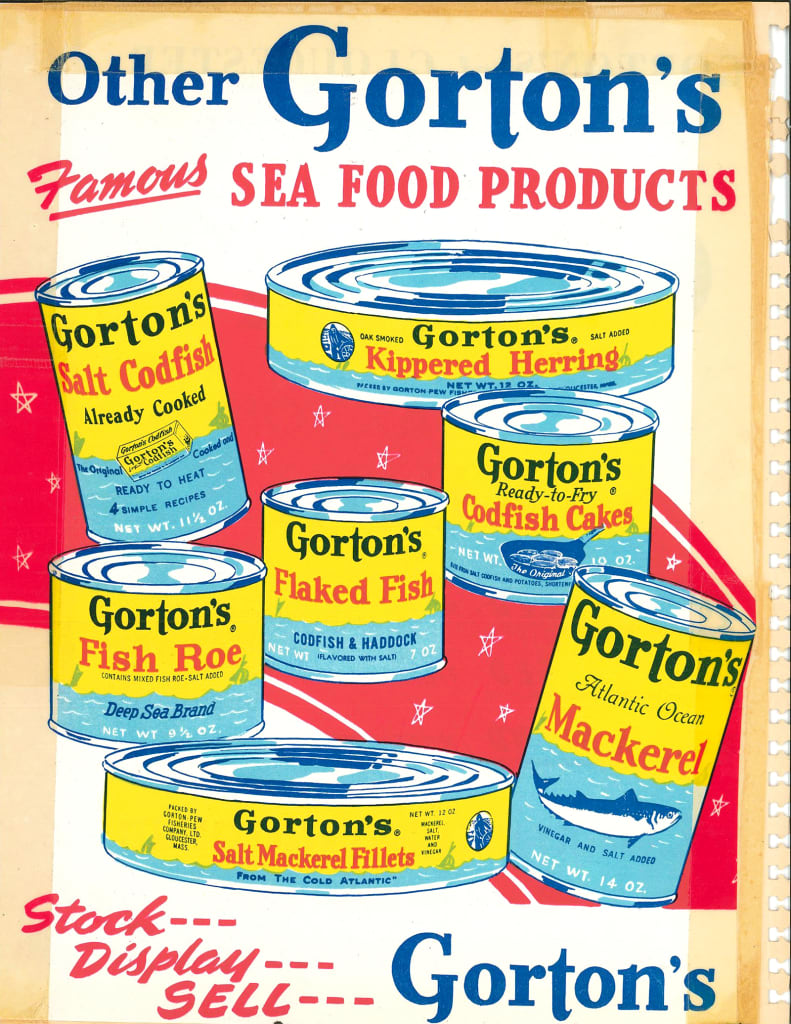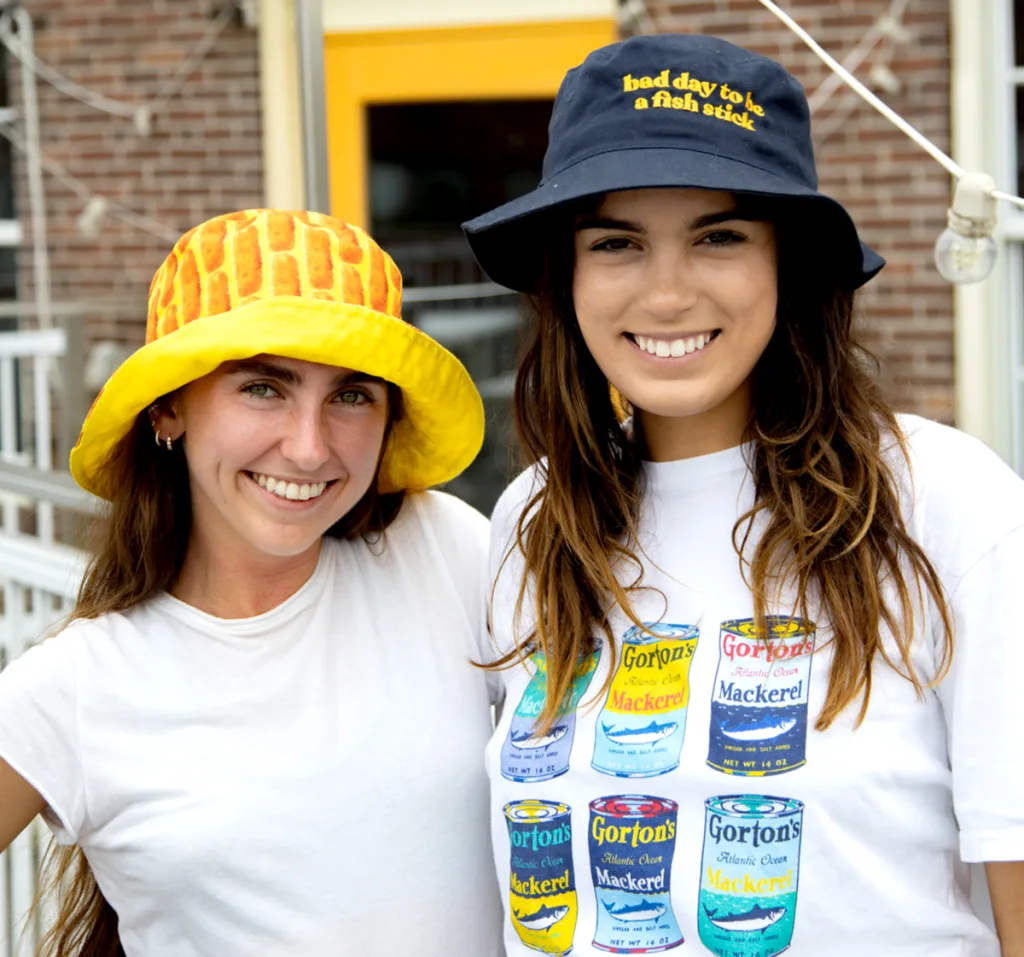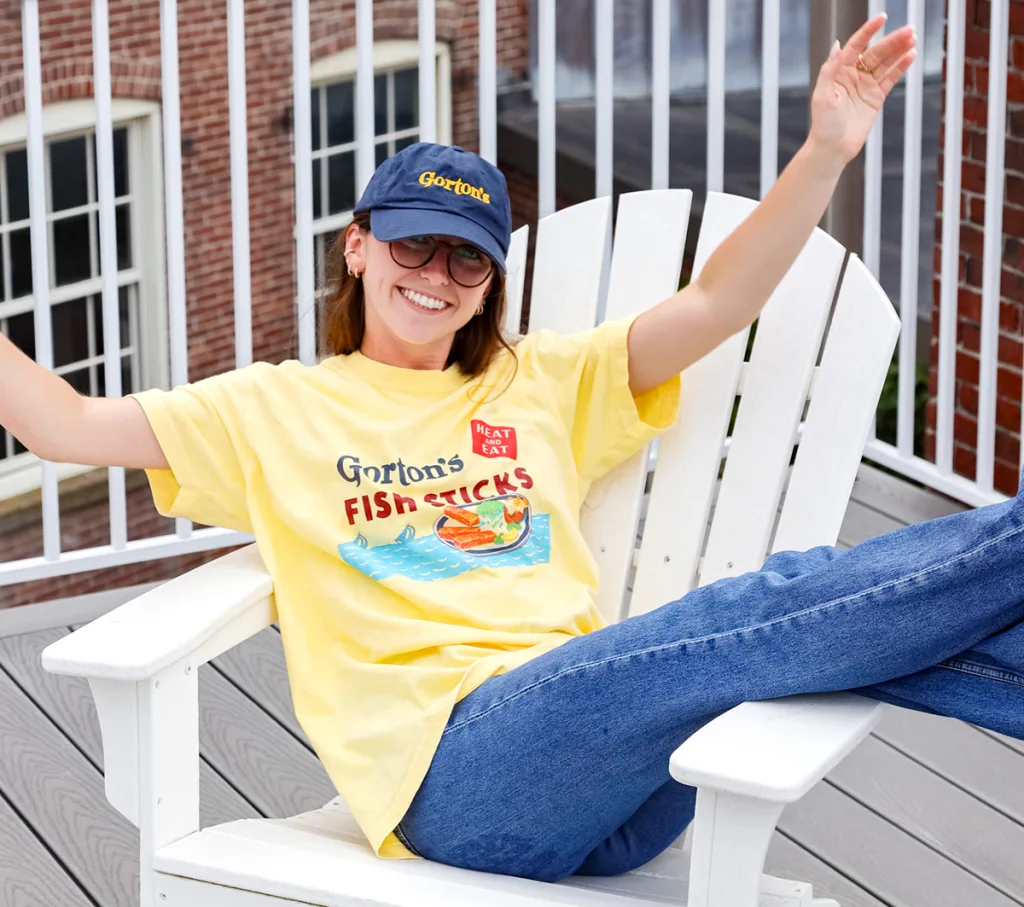Gorton’s Seafood, the fish stick purveyor that you might remember from its blue-and-yellow packaging and childhood-nostalgia factor, is trying to take fish and make it fashion. Surprisingly, they’re kind of pulling it off.
The company, founded and headquartered in Gloucester, Massachusetts, is celebrating its 175th anniversary this year with a multifaceted ad campaign that includes TV ad spots, influencer partnerships, and a line of Gen Z-approved merch. Fans can choose from gems including a trendy bucket hat emblazoned with the phrase “bad day to be a fish stick,” an Andy Warhol-inspired graphic tee covered in mackerel cans, a chic tote bag, even a beach towel covered in giant fish sticks (admittedly, one of the less appealing items in the drop).

According to Gorton’s senior integrated marketing manager, Susie Siegel, the shockingly with-the-times merch is part of Gorton’s larger ongoing mission to reel in a younger consumer. Last year, the company rolled out a series of air-fried fish products to ride the air fryer craze, and it’s been leaning more into influencer partnerships to reach millennials and Gen Z (including with some . . . interesting content on TikTok).
“We’re not just those fish sticks that you ate as a kid,” Siegel says—adding, “although those are great.”
Visiting the Gorton’s archives
The new merch collection was designed by the team at the marketing agency Connelly Partners, Gorton’s longtime agency of record. Associate creative director Abby Peterson says finding an approach that would be relatable, rather than cringe, was a bit of a balancing act.
“We wanted to have this conversation with the audience that felt relevant, but wasn’t that, ‘Hello fellow youths’ moment,” Peterson says. “We wanted to make sure we were balancing the tone between like a brand for [Gen Z], but not feeling stuffy and like it was pushing it down their throats.”
They struck that balance by hewing to the brand’s heritage, which is at the core of its identity as it nears two centuries of operations. A large portion of the merch is inspired by vintage Gorton’s assets, rather than modern-day memes—a strategy that still works for a younger consumer, given the current popularity of vintage and retro aesthetics.

To gather inspiration, Peterson’s team visited Gorton’s original headquarters, where the brand’s archives are maintained. She used an actual package from the ‘50s as the basis for one T-shirt and crew-neck design, which shows a plate loaded up with fish filets, peas, and a baked potato, complete with the slogan “Heat and Eat.” Peterson used a hand-drawn ‘60s print ad for canned mackerel to create a T-shirt modeled after Andy Warhol’s iconic Campbell Soup Cans. One shirt and a mug also include a fish drawing that was repurposed from old advertising materials.
“There are a lot of bits and pieces of the history woven throughout, but sort of making sure that the designs felt modern and cool and like something that I would want to wear,” Peterson says.
Throughout the merch, an old version of the “Gorton’s” wordmark can be found on bucket hats, baseball caps, and sweatshirts. It all looks reminiscent of something you might find on an Urban Outfitters graphic tee that’s popular on Pinterest—and, for a company that specializes in seafood, that’s a pretty high bar.

Passing the Gen Z-vibe check
Aside from the archival designs, there are also more tongue-in-cheek pieces, like the fish stick towel and “bad day to be a fish stick” bucket hat. These items were vetted via the ultimate test: a vibe check from Gen Z employees.
“Something that was key throughout all of this was really leaning into the younger members of both of our teams, and using them to get us into that mindset of that younger consumer because they are our target,” Siegel says. “So asking the Gen Z employees, ‘Is this cool to you guys? Is it not?’ Because if this doesn’t hit, then it’s out.”

So far, the merch is passing the test. Siegel says reactions have been overwhelmingly positive among employees since the internal launch on August 27, and the brand is planning a social media roll-out for the merch this week.
“We’re getting commentary from people who are telling us, ‘I showed this to my Gen Z kids, and they love it—they want more!” Siegel says.